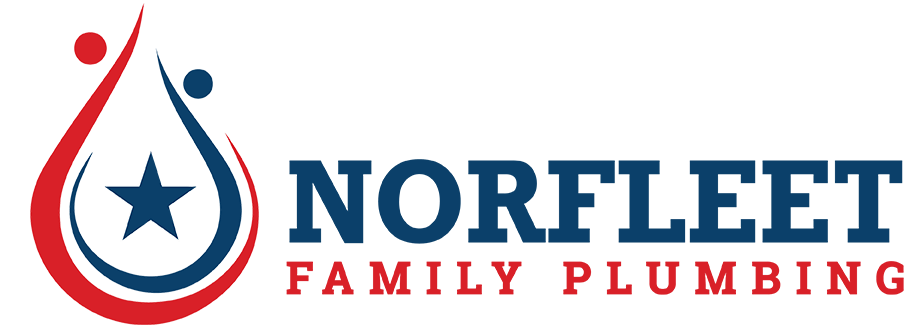Eco-Friendly Plumbing Solutions for Modern Homes
One of the most effective ways to conserve water is by installing water-efficient fixtures.
The modern home increasingly prioritizes sustainability, and the plumbing system plays a critical role in reaching this goal. Eco-friendly plumbing solutions offer numerous benefits, including reduced water consumption, energy savings, and a smaller carbon footprint. Implementing these solutions can significantly contribute to a greener, more sustainable home environment.
Water-Efficient Fixtures
One of the most effective ways to conserve water is by installing water-efficient fixtures. Low-flow showerheads, faucets, and toilets are designed to use less water without compromising performance. These fixtures can dramatically reduce water usage, leading to lower utility bills and the conservation of a vital resource. For instance, low-flow showerheads can decrease water consumption by up to 50% compared to traditional models.
Tankless Water Heaters
Traditional water heaters store and constantly heat large amounts of water, consuming significant energy. In contrast, tankless water heaters provide hot water on demand, heating only the water needed at any given moment. This approach reduces energy consumption and provides an endless supply of hot water. Tankless water heaters are also more compact, freeing up valuable space in the home.
Greywater Recycling Systems
Greywater recycling systems offer an innovative way to reuse water from sinks, showers, and washing machines for non-potable purposes such as irrigation and toilet flushing. By recycling greywater, homes can significantly reduce their overall water consumption. These systems are designed to filter and treat greywater, making it safe for secondary uses. Installing a greywater recycling system can be a substantial step toward achieving a sustainable home.
Rainwater Harvesting
Rainwater harvesting systems collect and store rainwater for various household uses, such as watering gardens, flushing toilets, and even laundry. This process reduces reliance on municipal water supplies and helps conserve water. Rainwater harvesting systems typically include a collection area, storage tanks, and filtration systems to ensure the water is clean and safe for use. Implementing this system can lead to substantial water savings and support sustainable living practices.
Energy-Efficient Appliances
Switching to energy-efficient appliances, such as dishwashers and washing machines, can notably reduce water and energy usage. These appliances are designed to perform the same tasks as traditional models while using less water and electricity. Energy-efficient dishwashers and washing machines often feature advanced technologies that optimize water flow and temperature, contributing to overall sustainability.
Leak Detection Systems
Water leaks can lead to substantial water waste and higher utility bills. Installing leak detection systems can help identify and address leaks promptly. These systems utilize sensors to monitor water flow and detect any irregularities, alerting homeowners to potential issues. Early detection and repair of leaks can prevent water damage and conserve water, making leak detection systems a valuable addition to an eco-friendly plumbing setup.
Sustainable Pipe Materials
The choice of pipe materials can also impact a plumbing system's environmental footprint. Sustainable materials such as PEX (cross-linked polyethylene) and copper are durable, long-lasting, and resistant to corrosion. These materials decrease the need for frequent replacements and repairs, minimizing waste and environmental impact. Additionally, PEX is flexible and easier to install, reducing labor costs and time.
Solar Water Heaters
Solar water heaters harness energy from the sun to heat water, offering a renewable and sustainable alternative to traditional water heating methods. These systems are made up of solar panels that capture and convert sunlight into thermal energy, which is then used to heat water. Solar water heaters can notably reduce energy bills and reliance on fossil fuels. While the initial investment may be higher, the long-term savings and environmental advantages make solar water heaters a valuable consideration.
Composting Toilets
Composting toilets provide an eco-friendly solution for waste management by converting human waste into compost. These toilets utilize natural processes to break down waste, eliminating the need for water and reducing the burden on septic systems and sewage treatment plants. Composting toilets are particularly beneficial in areas with limited water resources or where traditional plumbing systems are not feasible.
Proper Insulation
Insulating pipes and water heaters is a simple yet worthwhile way to enhance the efficiency of a plumbing system. Proper insulation reduces heat loss, maintaining the desired water temperature and reducing energy consumption. This practice is especially important for homes in colder climates, where heat loss can be significant. Insulating pipes can also prevent freezing and bursting during winter, protecting the plumbing system and reducing repair costs.
Eco-friendly plumbing solutions offer numerous benefits, from conserving water and energy to reducing environmental impact. By incorporating water-efficient fixtures, tankless water heaters, greywater recycling systems, rainwater harvesting, energy-efficient appliances, leak detection systems, sustainable pipe materials, solar water heaters, composting toilets, and proper insulation, modern homes can achieve a higher level of sustainability. These practices contribute to a greener future, promoting responsible resource management and enhancing the overall efficiency of residential plumbing systems.
If you need a licensed, bonded, experienced professional for plumbing, sewer camera inspection, or water heater installation, and water heater repair in Chandler, Gilbert, Mesa, Queen Creek, Ahwatukee or San Tan Valley call Norfleet Family Plumbing Heating and Air at 480-681-1764.

